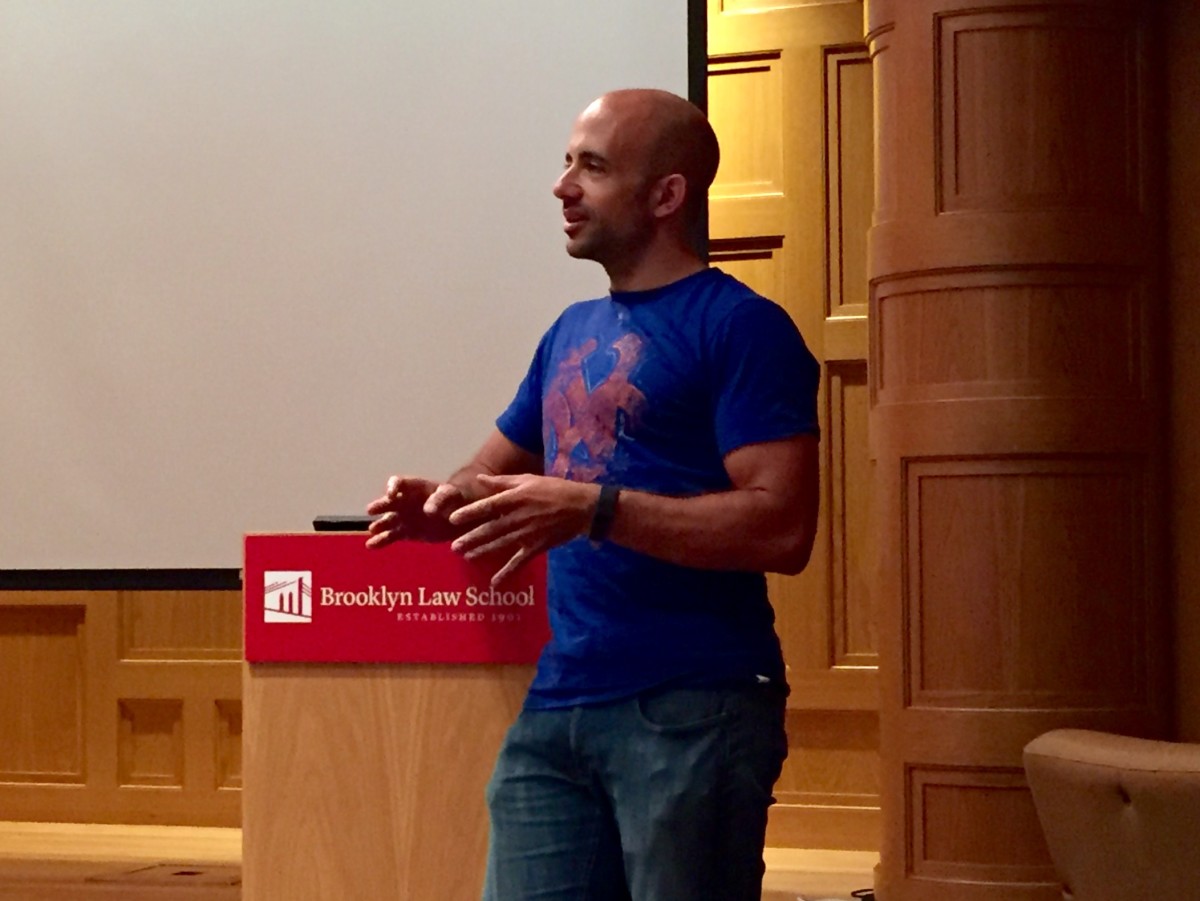Brooklyn Bridge Ventures’ #notapitch is like Shark Tank but there’s just one shark and he’s actually pretty nice.
Last week at Brooklyn Law School, Charlie O’Donnell held an open call for startup ideas and freely dispensed advice on what he thought of them.
About 10 people stood and gave their two-minute spiel, and while there was a wide variety of products and ideas, there were a few bits of advice that stood out.
It's #notapitch night with @ceonyc ! No decks, just honest feedback #tech #startups #brooklynbridgeventures pic.twitter.com/Q3mLuetRjl
— Brooklyn Bridge Ventures (@bklynbridgevc) September 23, 2015
1. For hardware, make sure you do well pre-sale, to show potential investors there’s something there.
One of the presenters had an idea for a water faucet gadget that would allow regular sink faucets to be motion activated. O’Donnell, who as a seed funder for Canary is no stranger to hardware, said that what would be crucially important would be pre-sale momentum.
“It sounds like the kind of idea that people are gonna be like, ‘That’s awesome,’” O’Donnell responded. “This would be the thing where how well a pre-sale does would be very influential to an investor.” He added:
I would suggest if you can do friends-family-angels, people who care about sustainability, whatever you can cobble together, give yourself the padding to spend the money on a really good pre-sale video, [or] maybe a PR person who will make sure you’ve reached out to the 100 reporters who’ve covered products in the past. I would look to do it on Kickstarter. Kickstarter carries its own traffic. The momentum of the sales causes more press.
2. Sometimes you need to tell the consumer what they need, not listen.
Another audience member (names and companies have been omitted to maintain an atmosphere where people will continue to openly share at the event) had a company which analyzes people’s closets and suggests outfits.
O’Donnell asked the presenter how he planned to monetize and he responded that it was a data play.
“We can tell you exactly what your target customer—,” the founder began.
“You totally lost me at that model,” O’Donnell interjected. “That is the model that every single fashion suggestion app pitches and no one’s been able to execute on it. I hear from fashion companies that they don’t need to know what is in someone’s closet, cause they tell them what to put into someone’s closet. As an investor, the data play on a fashion app has been pitched to me a million times and I’m just not into it.”
3. Search functions are hard to do well.
One member said he was developing a service that would allow you to enter your travel specs (climate, purpose, duration, price) and the tool would search the web for the best airfare and hotel offers. O’Donnell was skeptical.
“It’s actually really hard to market a search tool,” he said. “Users don’t know the search tool exists, and you don’t know who’s going to take a trip. You have to do sort of mass marketing, which is expensive.”
#notapitch happens every three months, in different locations. O’Donnell said he can get as much out of them as participants.
“I’ve actually funded a person from this,” he said before the event began. “I met her and I was like, ‘You’re sharp,’ and we stayed in touch. I probably take anywhere from two to four follow ups from this. And that’s very high for an event. At a normal pitch event you don’t get a 40-percent hit rate.”
Join the conversation!
Find news, events, jobs and people who share your interests on Technical.ly's open community Slack
